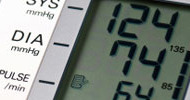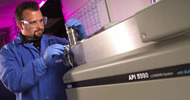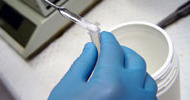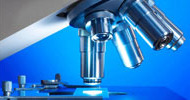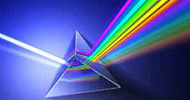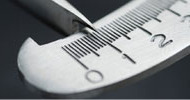Description
February 14, 2013 – Trenton, New Jersey - Princeton Instruments is pleased to announce the company’s IsoPlane imaging spectrograph has won SPIE’s Prism Award for Photonics Innovation in the category of Detectors, Sensing, Imaging and Cameras. This prestigious photonics industry award was presented by SPIE (the International Society for Optics and Photonics) and Photonics Media at a gala evening ceremony during the Photonics West Conference in San Francisco on February 6th. The award was established to recognize exceptional innovation in the photonics industry.The IsoPlane® (patent pending) features a revolutionary new optical design that eliminates field astigmatism and greatly reduces the spherical aberration and coma inherent in the design of the Czerny-Turner spectrograph. It produces images that are clearer and sharper across the focal plane than any comparable spectrograph on the market. As a result, more photons hit fewer pixels, significantly increasing the effective signal-to-noise ratio (SNR) of spectra. Thanks to its superior imaging ability, the IsoPlane eliminates cross talk in multi-channel spectroscopy and allows multiple fibers to be spatially and spectrally resolved.
“We are thrilled that the IsoPlane has been recognized with the prestigious Prism award by SPIE and Photonics Media. The design of an imaging spectrograph has largely been unchanged over a quarter century until the arrival of IsoPlane. With exceptional imaging and spectral performance, it is clearly the reference standard for all research-grade spectrographs,” comments Ravi Guntupalli, Vice President, Sales and Marketing. Together with Princeton Instruments’ industry-leading CCD, EMCCD, ICCD, and InGaAs cameras, as well as highly reflective mirror coatings from Acton Optics, the IsoPlane offers the best available performance in optical spectroscopy.
Applications for the IsoPlane spectrograph include Raman, fluorescence, photoluminescence, multi-channel spectroscopy, micro-spectroscopy, laser induced breakdown spectroscopy (LIBS), Fourier-domain spectroscopy, and biomedical spectroscopy. Researchers across life and physical sciences can use IsoPlane to design experiments that are hitherto not possible.











